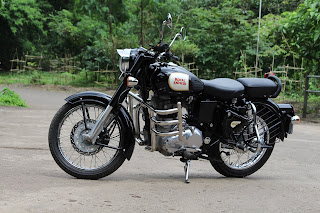How is the life of a sailor?
How is the life of a sailor?
Let me address your questions one by one.
- How do they feel while always being surrounded with water?



I always love ocean cruising significantly more than coastal navigation for many reasons and the above is undeniably one of it.
During coasting, the story is different. We see lands, mountains, islands en-route. Over and again we come across a lot of ships, barges, yacht and fishing boats resulting in traffic situations that demands cautious navigation. We encounter situations like this time and again.

2. With very little variety in life, doesn't they get bored?
Not really. We really don't have the opportunity to get bored and we simply don't have the time either. On a normal day at sea, I do two 4-hour watches (morning and evening) on the bridge.
I spend 2 hours (not every single day) to take care of any monthly or weekly checks or the maintenance of any life-saving appliances. The rest of the time I'm off from work and indulge in relaxing and recreating myself with the whatever I have. It's limited, but trust me, it's good enough. These are the things we do onboard.
- Work out at the Gym. (Yes, we have one)
- Read books. (We have a library)
- Use internet. (We have free internet onboard, 24/7)
- Watch movies. (We have a TV saloon and a big collection of movies)
- Socialise with ship mates.
- Play video games. (We have an Xbox)
- Play indoor games. (We have table-tennis, foosball etc)
- Enjoy the sumptuous meals.
We have zero-alcohol policy and there is no chance to get drunk on board, unless we choose to get sacked. Sailors drinking rum with breakfast might have sounded coherent a century back, but not any more. It's just another fallacy.
During port-stays, we get to go ashore gaining a chance to wander the place and spend some quality time ashore. A well-rewarding break.
3. How are the dangers in their life (pirates, storms) and how frequently they face it?
- Storms and rough weather conditions.
Despite the above, I have experienced pretty hostile sea conditions with high rolling and pitching which makes it really difficult to work and even to get a sleep without rolling from one side of the bed to the other.


- Piracy
From our side, we perform the following.
a) Extra watches and look-outs are posted.
b) Anti-piracy drills are conducted. Gears are rigged and kept ready to use.
c) Anti-piracy offices are informed and we keep reporting our position every 4 hours.
d) Some vessels have armed guards on-board.
4. How do they control the feelings that they are always away from their family?
As a trainee (cadet), I did contracts of 6 months at sea. I found that it's quite a long stretch to be on-board and normally by the last month I am tired and demotivated, just looking forward to go back home.
Presently, I have contracts ranging between 4-5 months with 2.5 months leave. For me, this works well. It's a good period of time when we spend time working not for too long and not for too short.
However, leaving behind our loved ones and the constant feeling of missing out on them is an irrefutable fact and are often considered as the not-so-bright side of sea-fearing. But I don't completely agree with it as we have several options to stay in constant touch with our family and friends.
- Internet
- Satellite Phone
- Family Carriage
Seafaring is not an easy job, and it's certainly not everyone's cup of tea. Despite the comfort, amenities and privileges provided by the employers, life is always unpredictable at sea and we always work and hope for the best. A sailor's life is always demanding, challenging and adventurous and that's the beauty of it.


Comments
Post a Comment